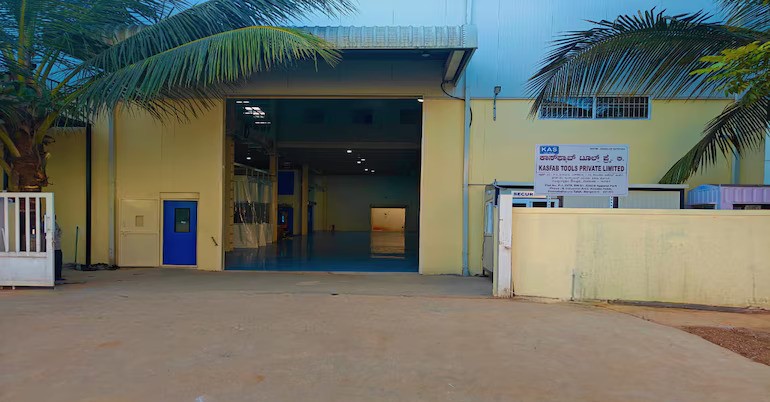A new venture of the KAS Group, Karnataka-based KASFAB Tools unveiled its state-of-the-art semiconductor production plant at Dodaballabpur on 27 January with an eye toward the $125 billion global chip business. About 45 kilometres separate the plant from Bengaluru, the state capital.
KASFAB Tools has secured a multi-million dollar contract to manufacture specialist semiconductor process equipment, according to managing director Manjunath Jyothinagara.
“We have a significant contract lined up for execution within this fiscal year,” Jyothinagara said. He added, “This initial order serves as a crucial stepping stone. Successful delivery will pave the way for growth, with the potential to scale up our production capacity.”
The company will initially focus on manufacturing legacy equipment at its 20,000-square-foot factory, where it has already invested Rs 20 crore and intends to invest up to Rs 250 crore.
With the facility, the company is trying to compete in the semiconductor equipment industry, which is worth $125 billion worldwide. “None of the companies in the ecosystem build everything by themselves 100 percent,” Jyothinagara said.
“They do a lot of things as contract manufacturing from value chain partners, who in turn build some subsystems or the entire equipment for them. Both ways are possible,” He emphasised the chance for businesses such as KASFAB Tools to join the market as specialised contract manufacturers.
The state-of-the-art cleanroom environment in the new facility includes Class 10 and Class 100, which are critical for component production, high-precision metal and plastic welding, ultrasound-aided cleaning with deionised (DI) water, and semiconductor manufacture.
“The construction of a cleanroom is a highly specialised and expensive undertaking,” Jyothinagara highlighted. “Each square foot of cleanroom space incurs a substantial cost of approximately 25,000 rupees.”
KAS Group has been involved in high-tech production in a number of industries during the last fifteen years, including hard metals, optical fibre, and solar energy.
“Semiconductor manufacturing is a highly complex process. Unlike other industries, it involves an intricate web of over 300 steps and necessitates the utilisation of 50 to 60 specialised materials. This level of complexity far surpasses the manufacturing processes of solar panels or optical fibre,” Jyothinagara said.
Additionally, he emphasised the necessity of increased government assistance to promote the expansion of Indian MSMEs in the semiconductor industry.
Tired of guessing stocks to trade in daily?
Unicorn Signals empowers you with powerful tools like daily stock scans for Intraday, Swing & Investing, Market Predictions and much more. Download the Unicorn Signals app today and take control of your investments!
 Live
Live

